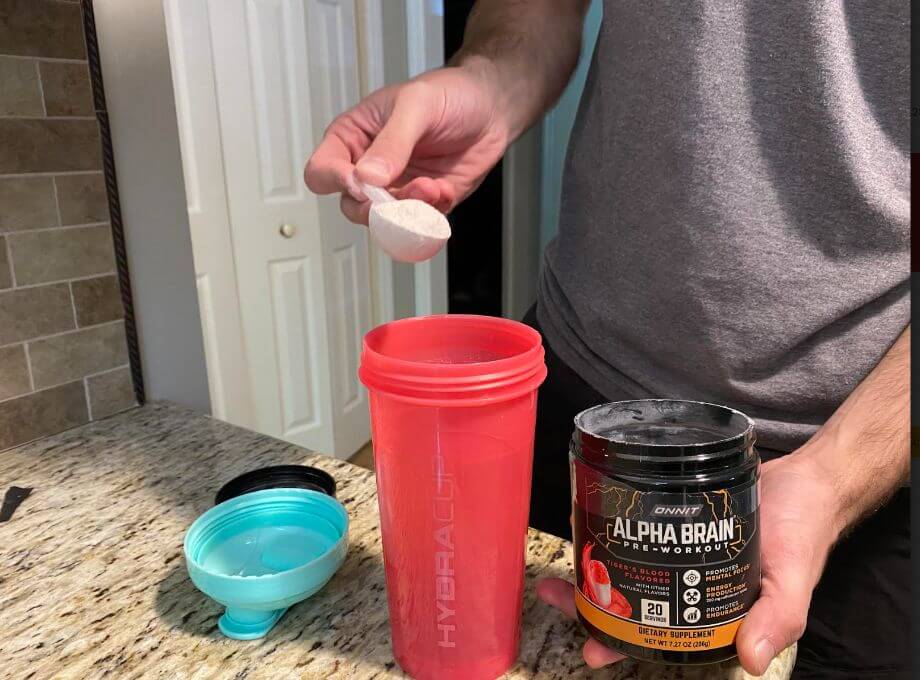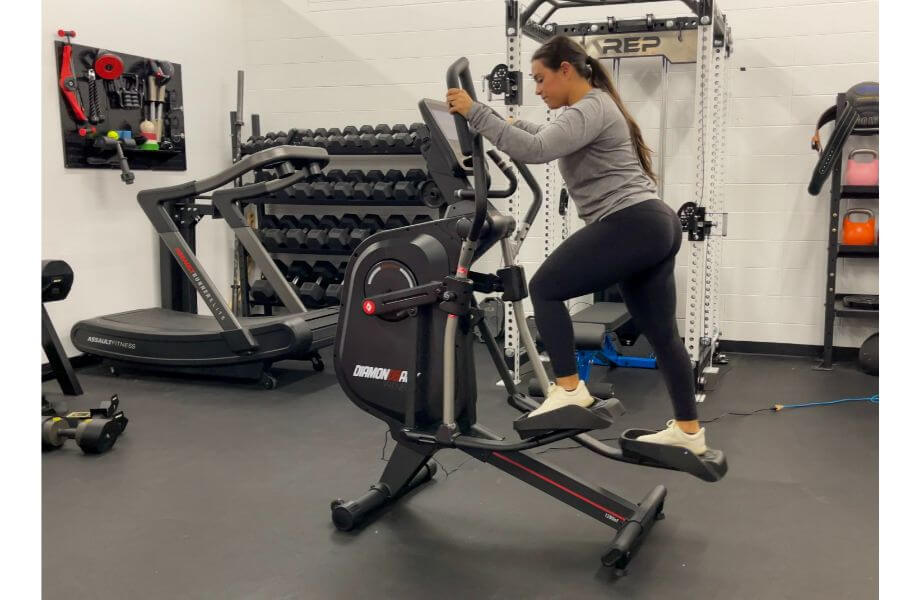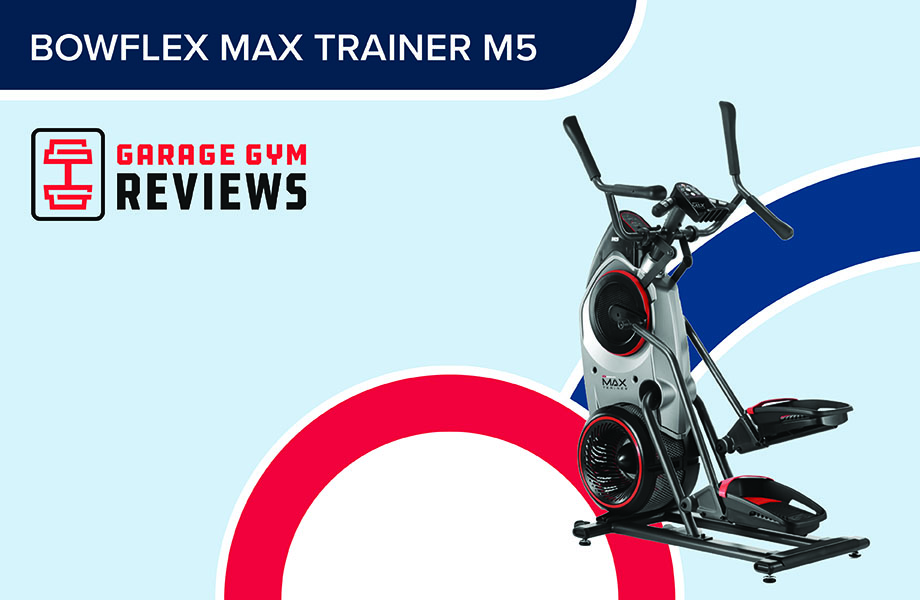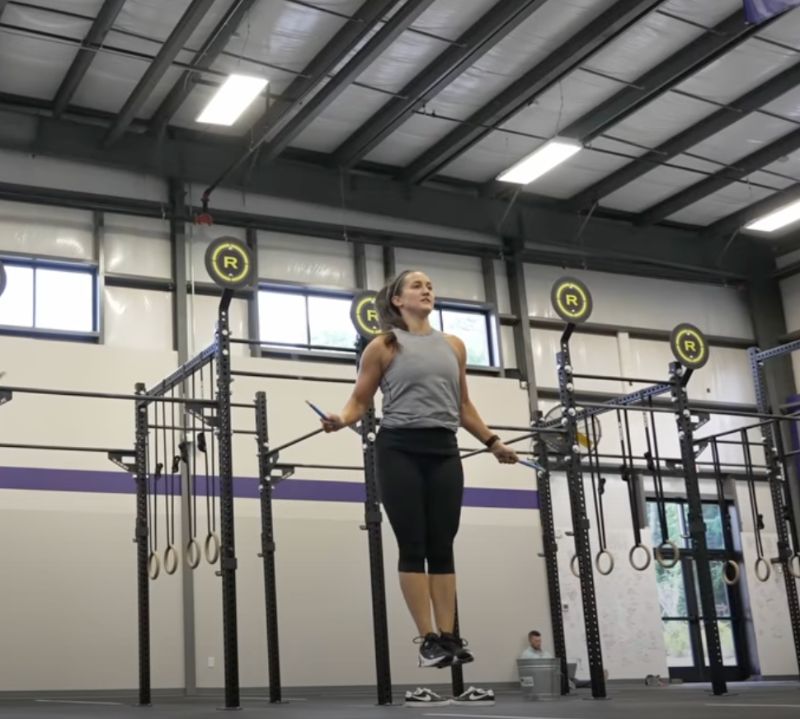If you’ve ever ventured into the world of fitness supplements, you’ve likely encountered all sorts of claims about the best pre-workout supplements. With supplement labels boasting benefits like a better pump, energy boosts, and improved focus during workouts, it’s easy to wonder whether any of these claims are legit.
An especially enticing claim is that many types of pre-workout can help build muscle, making these products seem like a no-brainer to people serious about optimizing their gains.
So, does pre-workout help build muscle? As a registered dietitian and certified personal trainer, I’ll delve into the science behind pre-workout supplements, discuss whether they have any impact on muscle growth, and show you what ingredients to look for in a pre-workout to best support your muscle-building efforts.
RELATED: Best Pre-Workout for Muscle Gain
Medical disclaimer: This article is intended for educational and informational purposes only. It is not intended as a substitute for medical advice. For health advice, contact a licensed healthcare provider.
What Are Pre-Workout Supplements?
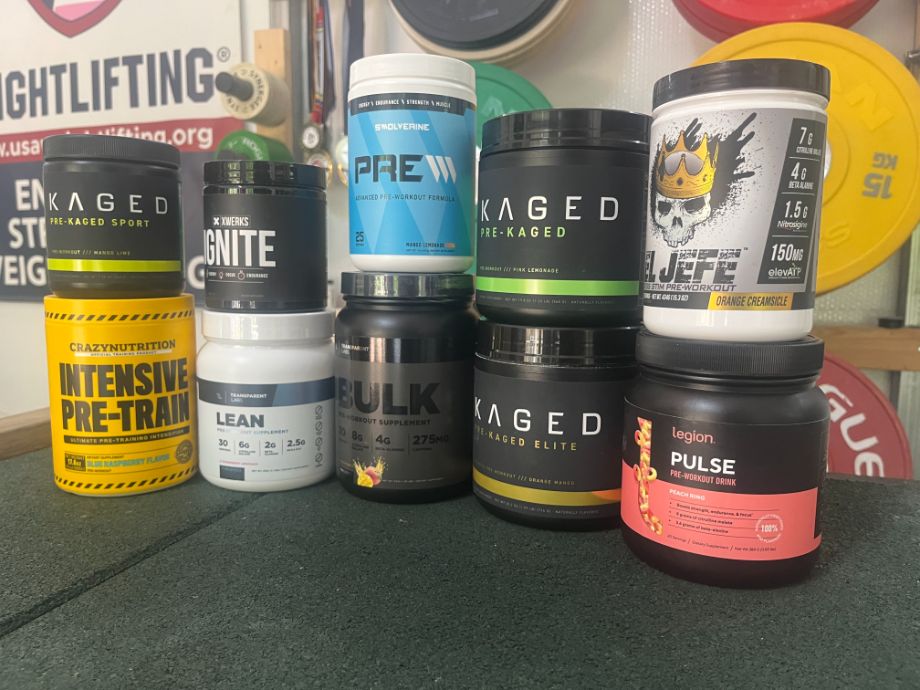
Pre-workout supplements contain one or more ergogenic ingredients that help boost athletic performance during exercise.
Many products contain a combination of ingredients to provide more benefits than you’d get by taking one ingredient alone. Some of these ingredients are very effective, while others are less so. Ingredients vary widely by brand, as do the doses of these ingredients.
Pre-workout is most often taken within an hour of exercise. It’s commonly sold as a powder that is mixed with water or juice, but pre-mixed energy drinks are also available.
RELATED: Stim vs Non-Stim Pre-Workout: Which One Should You Take?
What Are the Most Common Pre-Workout Ingredients?
Pre-workout ingredients vary by product and brand, but some pop up quite frequently.
Caffeine
If you’re only aware of one ingredient that helps when taken before a workout, odds are it’s caffeine. This popular legal stimulant boosts energy levels by blocking adenosine1 from attaching to its receptors in the brain. Adenosine is a natural compound that causes drowsiness and calmness. Caffeine blocks this effect, leading you to feel alert and focused instead.
It’s rare (but not impossible) to find a pre-workout that doesn’t have caffeine since it’s such a well-researched, effective ergogenic aid.
RELATED: Best Stim-Free Pre-Workout
Beta-alanine
Beta-alanine is a non-essential amino acid used by the body to produce carnosine, a short protein stored in the muscle. Carnosine acts as a pH buffer, preventing the muscle from becoming too acidic during high-intensity exercise and reducing fatigue.
Beta-alanine2 is added to pre-workout to increase muscle carnosine. Why not take carnosine directly, you ask? When taken as a supplement, the body breaks carnosine down into individual amino acids (beta-alanine and histidine) before it ever reaches the muscle, so taking beta-alanine is more effective.
Beta-alanine is also responsible for the pre-workout itch or tingles3—called paresthesia—when taken in high amounts.
RELATED: Why Does Pre-Workout Make You Itch?
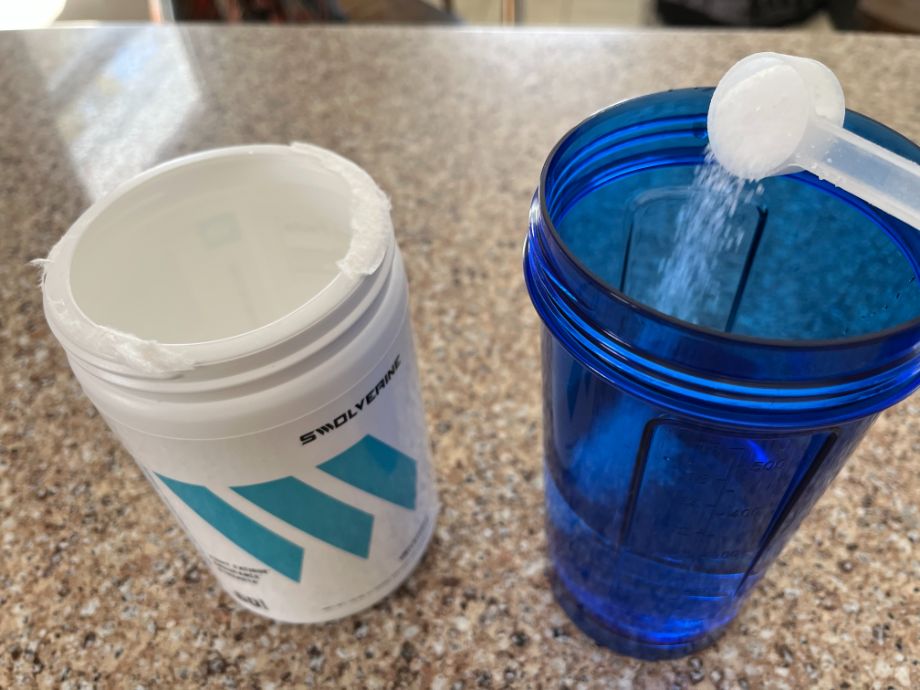
BCAAs
Branched-chain amino acids (BCAAs) are one of the most misunderstood ingredients in your pre-workout. BCAAs include three essential amino acids: leucine, isoleucine, and valine.
BCAAs are purported to provide a range of benefits, such as serving as fuel during exercise, reducing muscle fatigue, preventing muscle tissue breakdown, and stimulating muscle protein synthesis.
Sounds pretty impressive, but research doesn’t provide much support for these claims. As reported in an August 2018 review in the Journal of the International Society of Sports Nutrition4, BCAAs don’t significantly improve muscle protein synthesis or boost exercise performance.
RELATED: When to Take BCAAs: Complete Beginner’s Guide
Creatine
Creatine isn’t just for bodybuilders or powerlifters—it can help with a variety of training. While best known for its ability to help you put in more reps and sets during resistance training, it can also shorten recovery times and reduce injury.
Creatine supplementation works by helping regenerate adenosine triphosphate (ATP)5, a molecule broken down for energy during short-term, high-intensity exercises like lifting heavy weights and sprinting. Having a higher concentration of creatine in muscles is useful for regenerating ATP more quickly.
The most commonly used and effective form of creatine is creatine monohydrate.
RELATED: Best Pre-Workout With Creatine
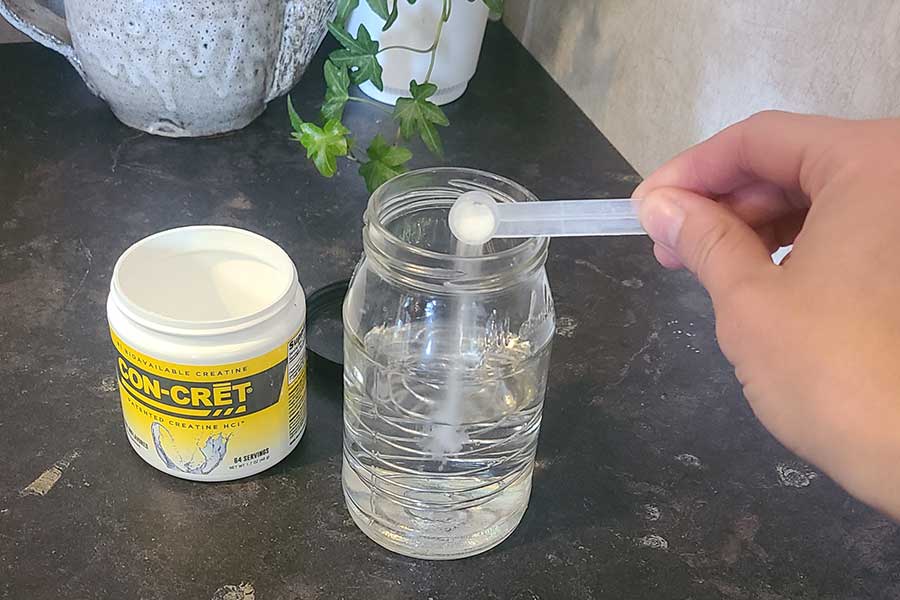
L-Carnitine
L-carnitine is a natural compound produced by the body and stored primarily in the heart and skeletal muscles. It’s required for the process of converting fat into energy6.
Most healthy people produce all the carnitine they need, but it’s thought that L-carnitine supplements may help prevent fatigue by reducing lactate buildup in the blood. As an antioxidant, it may also help reduce oxidative stress and muscle damage after a workout6.
Overall, however, research is mixed on how effective it truly is as an ergogenic aid.
L-Citrulline and L-Arginine
These amino acids increase the amount of nitric oxide present in the body. Nitric oxide is known for its ability to dilate blood vessels and increase blood flow7, boosting the delivery of oxygen and nutrients to the muscle.
Can Pre-Workouts Help Increase Muscle Growth?
So do these ingredients actually do anything to help build muscle mass? It depends. Pre-workouts can help build muscle if:
You’re Consistent with Resistance Training
Remember that the whole point of pre-workout is to give you more energy and help you train more effectively. If you’re taking pre-workout but aren’t putting in enough effort during workouts, you probably won’t see much difference in your body composition.
For best results, make sure that you’re consistently engaged in a resistance training regimen that progressively overloads the muscle. This means adding more reps, sets, or weight over time.
RELATED: What is Progressive Overload?
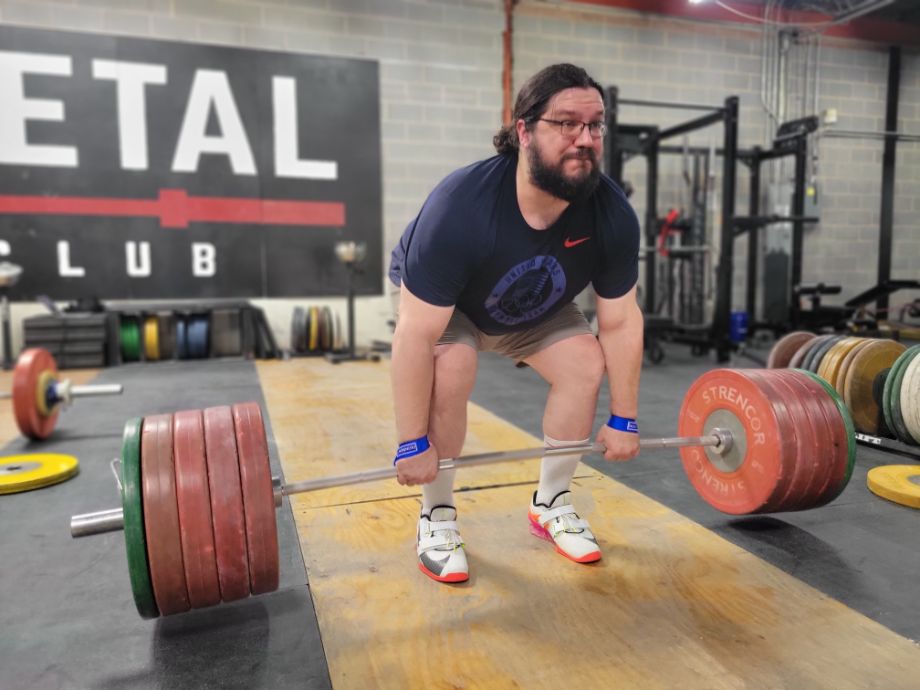
Your Pre-Workout Contains Effective Ingredients
There are only a couple pre-workout ingredients with consistent research backing their effectiveness for muscle growth: caffeine and creatine.
Other ingredients may help boost your workouts in other ways but may not do much to help with muscle gains.
Ingredients Are Present in Effective Doses
It isn’t enough just to see caffeine, creatine, and beta-alanine in the ingredients list; there has to be a large enough dose of each to actually provide benefits.
As found in a 2019 study published in Nutrients8, the average amount of all three of these ingredients in pre-workout supplements is lower than the amount shown in research studies to be effective. In other words, many pre-workout supplements simply don’t contain enough caffeine, creatine, or beta-alanine.
Additionally, it’s often recommended to take creatine and beta-alanine in loading doses to be most effective. This is accomplished by taking a larger amount for a short period to flood the muscle, followed by smaller daily doses for long-term maintenance. The creatine loading phase may involve taking roughly 20 to 25 grams of creatine every day for 5 to 7 days5, while taking 4 to 6 grams of beta-alanine daily for 2 to 4 weeks has been shown to be the most effective2.
RELATED: What to Look For in a Pre-Workout
Benefits of Pre-Workout Supplements
So, what can pre-workouts actually do for you? The benefits will depend on the ingredients used in each product, but a 2018 review4 of multi-ingredient pre-workout supplements found that many people can expect the following advantages:
May Help Improve Muscular Endurance
Taking pre-workout before exercising may contribute to improvements in muscular endurance, allowing the muscles to exert force over a longer period of time. Practically, this can mean performing more reps at the same weight.
It isn’t clear whether long-term consumption of pre-workout supplements increases overall muscular endurance, but research has shown benefits9 for each workout session when taking pre-workout beforehand.
May Help Improve Mood
There’s no question that workouts tend to go better when you feel your best. A number of studies4 have found that pre-workout supplements may boost exercise performance by raising self-perceived energy levels, reducing fatigue, and improving alertness and focus better than a placebo.
RELATED: Best Pre-Workout for Focus
May Help Build Lean Muscle
Possibly the most sought-after benefit of taking pre-workout is that it can help you build bigger muscles. This comes with an important caveat, however—you’ll need to take it while consistently engaging in resistance training that progressively overloads the muscles.
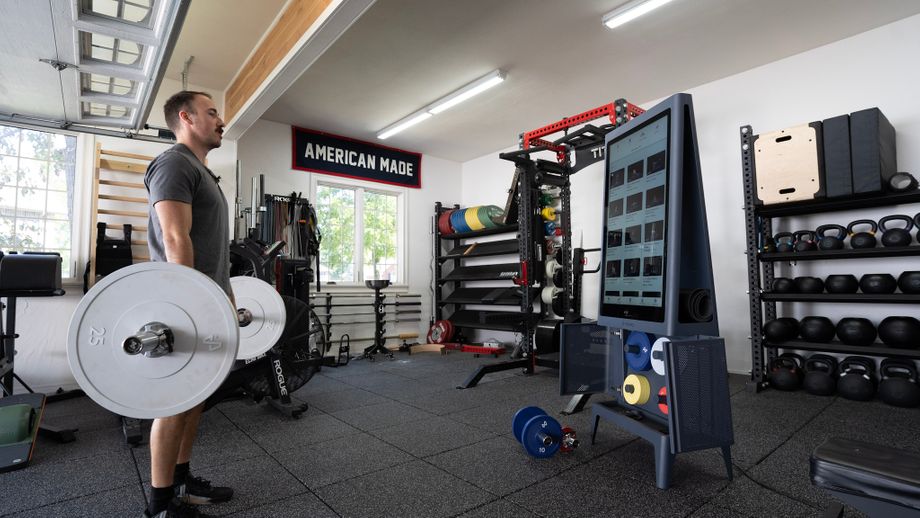
Pre-workout can help by giving you more energy during workouts, but you’ll still have to put in the work yourself. Taking pre-workout alone without hard work won’t get you very far in improving your body composition. And it won’t be as effective if you aren’t meeting your protein needs for gaining muscle.
RELATED: How much Protein to Gain Muscle?
May Help Increase Force and Power Production
Pre-workout may help your muscles exert more force and power during explosive movements, but the evidence is still very mixed on its effectiveness.
Risks of Pre-Workout Supplements
Dietary supplements aren’t currently regulated by the FDA, so unexpected ingredients and side effects are always a risk.
May Contain Dangerous Ingredients or Contaminants
Many pre-workouts contain “proprietary blends” of ingredients. Manufacturers aren’t required to list every ingredient in the product when using this term, so it’s possible that dangerous or unexpected ingredients may be present.
This isn’t a theoretical risk — banned ingredients like steroids or methamphetamines have been found in pre-workout supplements4, as have contaminants like heavy metals.
The best way to avoid dangerous ingredients is to buy supplements that have been third-party tested, are certified with labels such as NSF Certified for Sport®, or avoid using proprietary blends.
May Contain Excessive Caffeine
The FDA recommends limiting your daily caffeine intake to less than 400 milligrams10. Getting more caffeine than this can cause unpleasant side effects such as:
- Jitters
- Insomnia
- Heart palpitations
- Elevated heart rate
- Worsened anxiety
Most pre-workouts contain less than 400 milligrams, which on their own should be safe for most healthy people. However, caffeine can quickly add up when you consider other sources like your morning cups of coffee, tea, or soda.
If you regularly consume other foods and beverages with caffeine, balancing your pre-workout caffeine with other caffeine sources can help you stay under the 400 milligram recommendation and avoid harmful side effects.
May Cause Itching
Paresthesia is a more surprising pre-workout side effect that occurs when consuming beta-alanine. This is often described as an itching, burning, or tingling sensation that happens when beta-alanine activates sensory receptors in the skin. Paresthesia isn’t dangerous, but it can be annoying and uncomfortable.
It’s most likely to happen when consuming high doses (more than 800 milligrams) of beta-alanine in a quick-absorbing, non-sustained release form, according to the International Society of Sports Nutrition2. Choosing a sustained-release formulation of beta-alanine may help.
Fortunately, paresthesia usually subsides within 60 to 90 minutes.
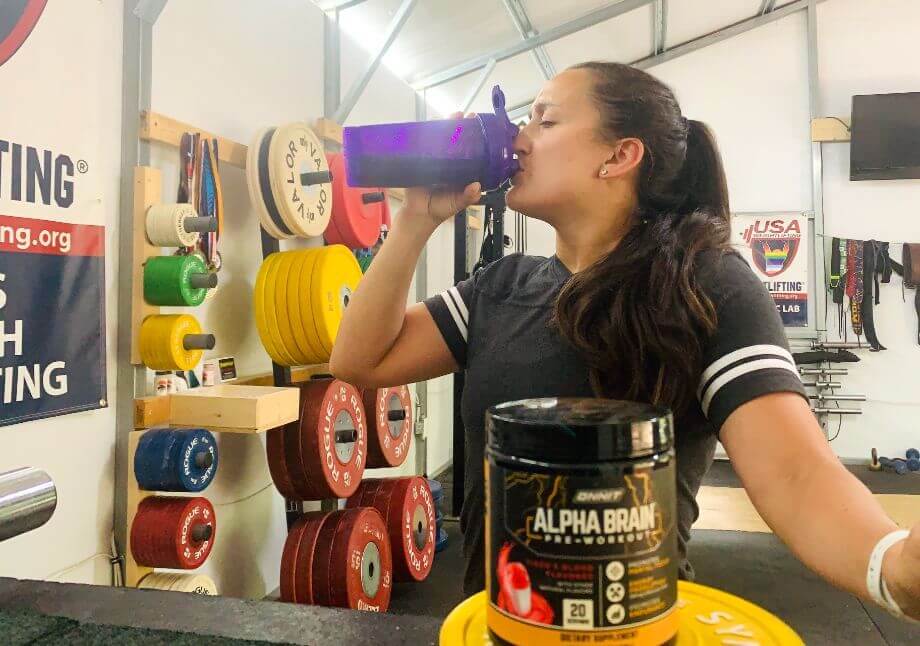
Does Pre-Workout Help Build Muscles: Final Thoughts
Including a pre-workout supplement in your fitness routine can help you build lean body mass, but there are some important caveats to be aware of. Pre-workout is most likely to help build muscle if:
- You’re performing resistance exercises and increasing reps or weight over time
- Your pre-workout contains caffeine and/or creatine in amounts proven to be effective for building muscle
- You’re optimizing your protein intake
The benefits of pre-workout for building muscle boil down to this: it can be effective if it helps you put in more effort at the gym and train more efficiently, but it won’t overcome any shortfalls in your training, nutrition, or post-workout recovery.
Does Pre-Workout Help Build Muscles? FAQs
Does pre-workout increase testosterone?
Most likely not. There is currently no evidence suggesting that pre-workout has an effect on testosterone levels. Pre-workouts that have intentionally had illegal testosterone boosters added to them are a different story, but most reputable pre-workout products shouldn’t contain these banned ingredients.
Does pre-workout really make a difference?
Pre-workout supplements can help improve energy levels and focus, effectively helping you put in more effort during your workout. For example, they may help you complete more reps when lifting weights. They’ll likely be most helpful when paired with a consistent training plan and healthy, well-balanced diet.
Does pre-workout have downsides?
Pre-workout may make you jittery or unable to sleep if the product contains too much caffeine. It can also cause paresthesia, an itchy, tingly (but harmless) sensation caused by the inclusion of beta-alanine.
Does pre-workout make your muscles look bigger?
Some pre-workouts contain vasodilators—like arginine, citrulline, and beta-alanine which can create a “pump” by increasing blood and oxygen flow to the muscles. You may also retain more water when taking pre-workouts. That said, these effects are temporary. Pre-workouts alone won’t make you look bigger, but the muscle you’ll build by regularly training can.
These statements have not been evaluated by the Food and Drug Administration. This product is not intended to diagnose, treat, cure, or prevent any diseases.
References
- Fiani B, Zhu L, Musch BL, Briceno S, Andel R, Sadeq N, Ansari AZ. The Neurophysiology of Caffeine as a Central Nervous System Stimulant and the Resultant Effects on Cognitive Function. Cureus. 2021 May 14;13(5):e15032. doi: 10.7759/cureus.15032. PMID: 34150383; PMCID: PMC8202818.
- Trexler ET, Smith-Ryan AE, Stout JR, et al. International society of sports nutrition position stand: Beta-Alanine. J Int Soc Sports Nutr. 2015;12:30. Published 2015 Jul 15. doi:10.1186/s12970-015-0090-y
- Liu Q, Sikand P, Ma C, Tang Z, Han L, Li Z, Sun S, LaMotte RH, Dong X. Mechanisms of itch evoked by β-alanine. J Neurosci. 2012 Oct 17;32(42):14532-7. doi: 10.1523/JNEUROSCI.3509-12.2012. PMID: 23077038; PMCID: PMC3491570.
- Harty PS, Zabriskie HA, Erickson JL, Molling PE, Kerksick CM, Jagim AR. Multi-ingredient pre-workout supplements, safety implications, and performance outcomes: a brief review. J Int Soc Sports Nutr. 2018;15(1):41. Published 2018 Aug 8. doi:10.1186/s12970-018-0247-6
- Wax B, Kerksick CM, Jagim AR, Mayo JJ, Lyons BC, Kreider RB. Creatine for Exercise and Sports Performance, with Recovery Considerations for Healthy Populations. Nutrients. 2021 Jun 2;13(6):1915. doi: 10.3390/nu13061915. PMID: 34199588; PMCID: PMC8228369.
- National Institutes of Health (April 17, 2023). Carnitine – Fact Sheet for Health Professionals. NIH Office of Dietary Supplements. Retrieved November 15, 2023, from https://ods.od.nih.gov/factsheets/Carnitine-HealthProfessional/
- Premont RT, Reynolds JD, Zhang R, Stamler JS. Role of Nitric Oxide Carried by Hemoglobin in Cardiovascular Physiology: Developments on a Three-Gas Respiratory Cycle. Circ Res. 2020 Jan 3;126(1):129-158. doi: 10.1161/CIRCRESAHA.119.315626. Epub 2019 Oct 8. PMID: 31590598; PMCID: PMC7034631.
- Jagim AR, Harty PS, Camic CL. Common Ingredient Profiles of Multi-Ingredient Pre-Workout Supplements. Nutrients. 2019;11(2):254. Published 2019 Jan 24. doi:10.3390/nu11020254
- Kaczka P, Batra A, Kubicka K, Maciejczyk M, Rzeszutko-Bełzowska A, Pezdan-Śliż I, Michałowska-Sawczyn M, Przydział M, Płonka A, Cięszczyk P, Humińska-Lisowska K, Zając T. Effects of Pre-Workout Multi-Ingredient Supplement on Anaerobic Performance: Randomized Double-Blind Crossover Study. Int J Environ Res Public Health. 2020 Nov 9;17(21):8262. doi: 10.3390/ijerph17218262. PMID: 33182295; PMCID: PMC7664913.
- Reyes CM, Cornelis MC. Caffeine in the Diet: Country-Level Consumption and Guidelines. Nutrients. 2018 Nov 15;10(11):1772. doi: 10.3390/nu10111772. PMID: 30445721; PMCID: PMC6266969.


